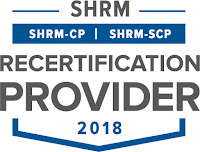Food Safety, Security and Fraud-Are You Ready?
OVERVIEW
Microbiological issues of food safety have historically been
considered the result of inadvertent contamination. Intentional contamination
or adulteration of food is, however, also a reality. Traditional HACCP
programs are designed to enhance food safety by addressing the risk of
inadvertent contamination of food during production and processing. Mitigating
the intentional contamination of food requires an approach beyond HACCP.
Thwarting food bioterrorism is critical to minimizing not only the health risk,
but also the economic risk. Beyond the illness that can occur as a result of
the intentional contamination of food, the economic impact on brand name and
product type can also be significant.
WHY SHOULD YOU ATTEND
We will review some of the microbiological causes of foodborne
infections and intoxications, as well as explore examples of the dire
consequences of adulteration, ostensibly for economic gain. This webinar will
also discuss the potential threats of using food as biological weapon and the
actions food companies can take to mitigate and minimize the risks of
intentional food adulteration.
 |
| SHRM Verified Webinar |
AREAS COVERED
- Underlying causes of microbial foodborne illness
- Inadvertent vs. intentional contamination of food
- Threats and realities of using food as a biological
weapon
- Managing the risks
- Food Safety Modernization Act
LEARNING OBJECTIVES
- Risk Identification
- Risk Mitigation
- HACCP limitations
- Added benefits of HARPC
- Meeting FSMA Requirements
- Food Safety Culture and Integrity
WHO WILL BENEFIT
- Food Production Managers/Supervisors,
- Food Plant Microbiologists
- QA/QC Personnel
- Food plant owners/operators
For more detail please click on this below link:
Email: support@trainingdoyens.com
Toll Free: +1-888-300-8494
Tel: +1-720-996-1616
Fax: +1-888-909-1882



Comments
Post a Comment